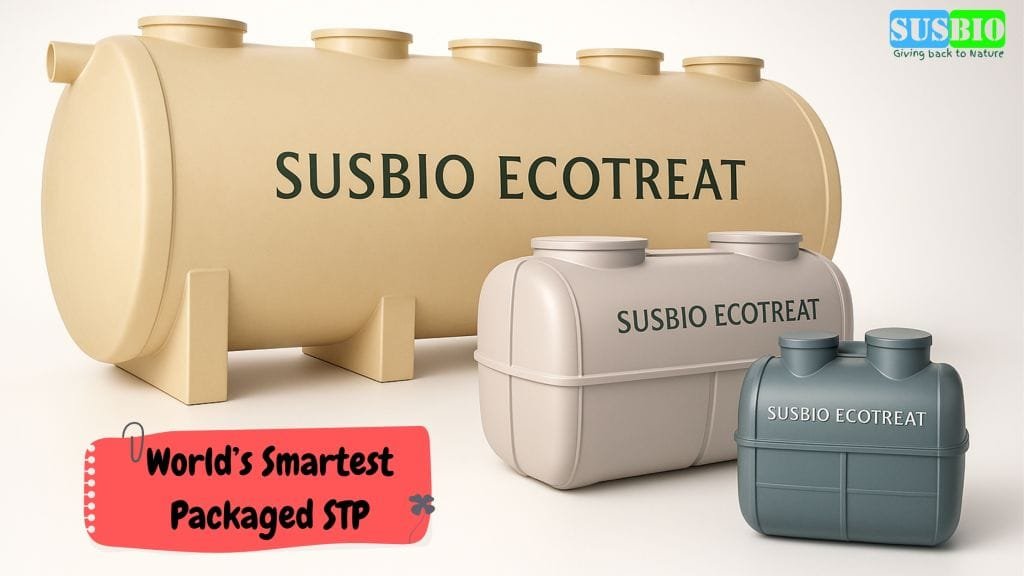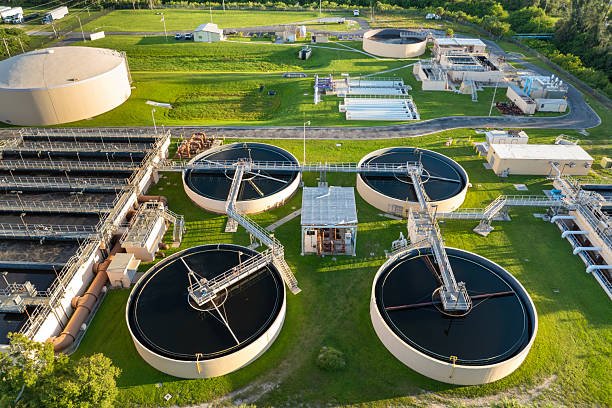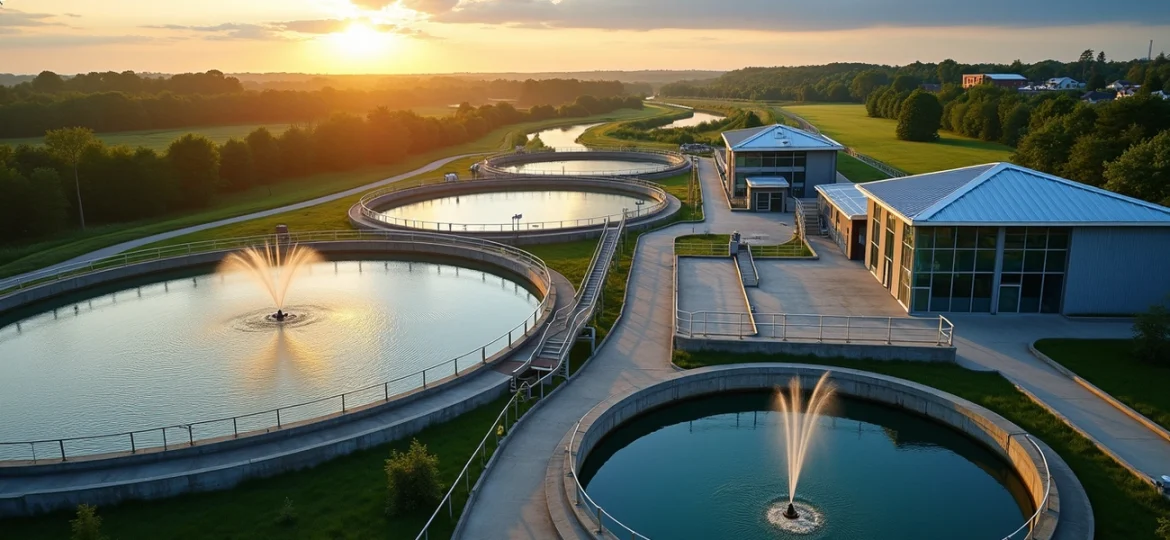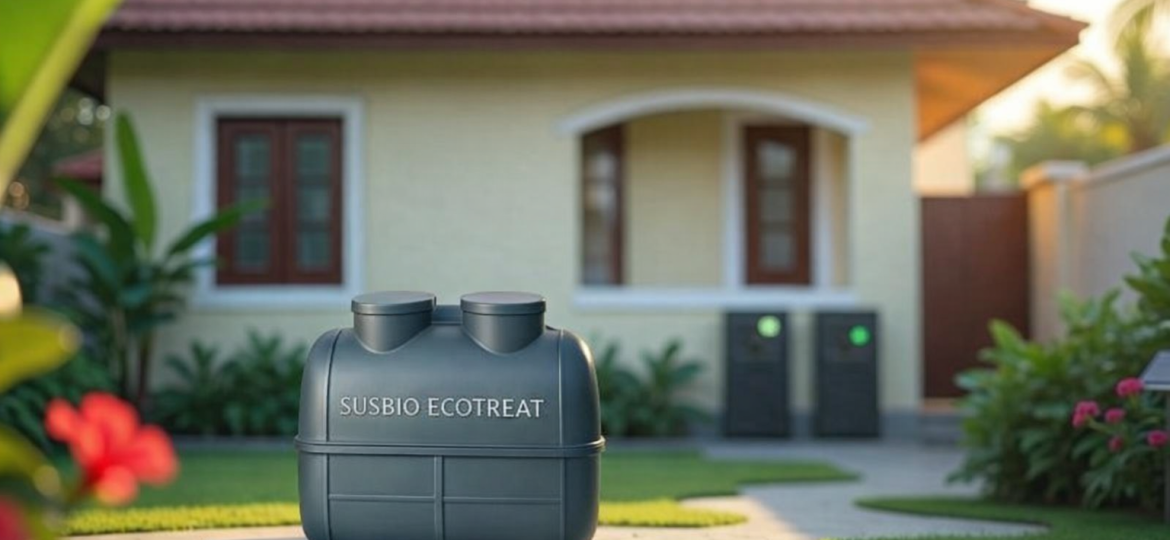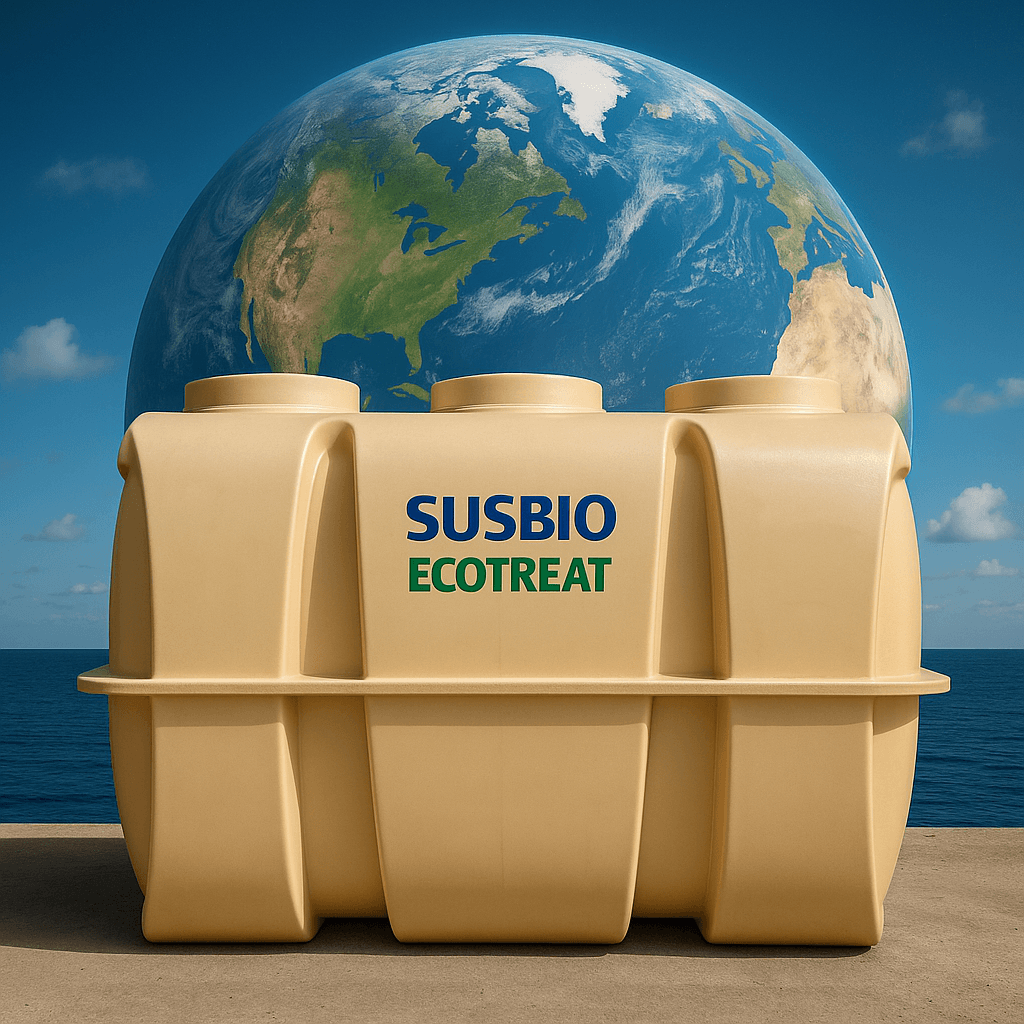Sewage treatment plants (STPs) and Fecal Sludge Treatment Plants (FSTPs) play a crucial role in managing faecal sludge, ensuring the health and well-being of communities while protecting the environment. As urbanization and population growth continue to rise, the need for efficient and effective fecal sludge management systems becomes increasingly important. In this blog, we’ll explore the various ways STPs contribute to faecal sludge management and why they are essential for sustainable living and urban sanitation.
Primary Treatment: Removing Solids
The first stage of the sewage treatment process involves the removal of large solid particles from the wastewater. During primary treatment, raw sewage passes through screens and sedimentation tanks where solid materials, including fecal sludge, are separated from the liquid. This solid-liquid separation process helps in reducing the load on subsequent treatment stages and prevents blockages in the system.
Secondary Treatment: Biological Breakdown
After primary treatment, the wastewater undergoes secondary treatment, which involves biological processes to break down organic matter, including faecal sludge. Microorganisms, such as bacteria, are introduced to the wastewater in aeration tanks for biological treatment. These microorganisms consume the organic pollutants, converting them into more stable substances. This biological process is essential for reducing the levels of pathogens, including helminth eggs, and harmful substances in the wastewater. In some cases, constructed wetlands may be used as an alternative or complementary method for secondary treatment.
Tertiary Treatment: Advanced Cleaning
In some STPs and FSTPs, tertiary treatment is employed to further purify the wastewater. This stage involves advanced filtration, chemical treatments, and disinfection processes to remove any remaining contaminants. Tertiary treatment ensures that the treated effluent is of high quality and safe for discharge into natural water bodies or for reuse in various applications, such as irrigation or industrial processes.
Sludge Management: Handling Byproducts
One of the byproducts of sewage treatment is sludge, which contains concentrated fecal matter and other organic materials. Proper sludge treatment is critical for effective fecal sludge management. STPs employ various methods, such as anaerobic digestion, composting, and thermal drying, to stabilize and reduce the volume of sludges. These processes not only minimize environmental impact but also allow for the safe disposal or reuse of sludge as fertilizer or soil conditioner. Sludge drying beds and mechanical dewatering are common techniques used in sludge treatment plants to reduce moisture content and facilitate easier handling.
Pathogen Reduction: Ensuring Public Health
STPs and FSTPs play a vital role in reducing the presence of pathogens in wastewater. Fecal sludge contains numerous harmful microorganisms, including bacteria, viruses, and parasites like helminth eggs, which can cause diseases if not properly managed. Through a combination of physical, biological, and chemical treatments, these facilities significantly lower the concentration of these pathogens, thereby protecting public health and preventing the spread of waterborne diseases.
Environmental Protection: Safeguarding Ecosystems
Properly treated sewage helps to protect natural water bodies from pollution. Untreated or inadequately treated faecal sludge can lead to the contamination of rivers, lakes, and oceans, causing severe damage to aquatic ecosystems. By effectively managing fecal sludge, STPs and FSTPs ensure that the discharged water meets environmental standards, preserving the health of aquatic life and maintaining the balance of ecosystems. Waste stabilization ponds are sometimes used as a natural method for treating wastewater and reducing its organic load before discharge.
Resource Recovery: Sustainable Practices
Modern STPs and FSTPs are increasingly focused on resource recovery, turning waste into valuable resources. For example, the biogas produced during the anaerobic digestion of sludge can be captured and used as a renewable energy source. Additionally, nutrients recovered from the treatment process can be utilized as fertilizers, promoting sustainable agricultural practices. Co-composting of treated fecal sludge with other organic waste can produce high-quality compost for agriculture. These initiatives contribute to a circular economy, where waste is minimized, and resources are efficiently utilized.
Onsite Sanitation Systems: Complementing Centralized Treatment
While centralized STPs are crucial for urban areas, onsite sanitation systems such as septic tanks and pit latrines play a significant role in managing fecal sludge in less densely populated areas. These systems require regular maintenance and emptying services to function effectively. Vacuum trucks are commonly used for scheduled desludging of septic tanks and pit latrines, transporting the collected faecal sludge to processing facilities for proper treatment.
The SUSBIO Advantage in Fecal Sludge Management
SUSBIO is at the forefront of revolutionizing fecal sludge management with its innovative sewage treatment solutions. As a leading STP manufacturer, SUSBIO designs and delivers advanced sewage treatment plants that cater to a variety of needs, from large-scale municipal systems to compact solutions for smaller communities and industries. Our commitment to excellence and sustainability is reflected in our range of products, including packaged STPs and prefabricated STPs.
Our packaged STPs are ideal for areas with limited space and resources, providing an all-in-one solution that is both efficient and easy to install. These systems are pre-engineered to handle specific capacities, ensuring optimal performance and reliability. They are perfect for remote locations, residential complexes, and small industrial units, offering a hassle-free approach to fecal sludge management.
SUSBIO’s prefabricated STPs take modular design to the next level, allowing for quick assembly and scalability. These systems can be customized to meet the unique requirements of each client, ensuring that the treatment process is both effective and economical. By using high-quality materials and state-of-the-art technology, we ensure that our prefabricated STPs deliver superior performance, long-term durability, and minimal maintenance requirements.
By choosing SUSBIO as your sewage treatment plant manufacturer, you are investing in a sustainable future. Our systems incorporate the latest advancements in wastewater treatment technology, including primary, secondary, and tertiary treatments, as well as efficient sludge management processes. This comprehensive approach ensures that all aspects of fecal sludge are addressed, resulting in cleaner water, reduced environmental impact, and enhanced public health.
At SUSBIO, we understand the critical importance of managing fecal sludge in a way that protects both people and the planet. Our commitment to innovation, quality, and sustainability drives us to continuously improve our products and services, ensuring that we remain leaders in the field of sewage treatment. By implementing our advanced STPs, communities can enjoy the benefits of a cleaner environment, safer water sources, and a healthier population.
CONCLUSION
Susbio is at the forefront of revolutionizing fecal waste management with its innovative sewage treatment solutions. As a leading STP manufacturer, Susbio designs and delivers advanced sewage treatment plants that cater to a variety of needs, from large-scale municipal systems to compact solutions for smaller communities and industries. Our commitment to excellence and sustainability is reflected in our range of products, including packaged STPs and prefabricated STPs.
Our packaged STPs are ideal for areas with limited space and resources, providing an all-in-one solution that is both efficient and easy to install. These systems are pre-engineered to handle specific capacities, ensuring optimal performance and reliability. They are perfect for remote locations, residential complexes, and small industrial units, offering a hassle-free approach to fecal waste management.
Susbio’s prefabricated STPs take modular design to the next level, allowing for quick assembly and scalability. These systems can be customized to meet the unique requirements of each client, ensuring that the treatment process is both effective and economical. By using high-quality materials and state-of-the-art technology, we ensure that our prefabricated STPs and well water treatment systems deliver superior performance, long-term durability, and minimal maintenance.
By choosing SUSBIO as your sewage treatment plant manufacturer, you are investing in a sustainable future. Our systems incorporate the latest advancements in wastewater treatment technology, including primary, secondary, and tertiary treatments, as well as efficient sludge management processes. This comprehensive approach ensures that all aspects of fecal waste are addressed, resulting in cleaner water, reduced environmental impact, and enhanced public health.
At Susbio, we understand the critical importance of managing fecal waste in a way that protects both people and the planet. Our commitment to innovation, quality, and sustainability drives us to continuously improve our products and services, ensuring that we remain leaders in the field of sewage treatment. By implementing our advanced STPs, communities can enjoy the benefits of a cleaner environment, safer water sources, and a healthier population.
In conclusion, Susbio’s expertise as an STP manufacturer and provider of packaged and prefabricated sewage treatment plants is making a significant impact on fecal waste management. Our solutions are designed to meet the diverse needs of our clients, providing efficient, reliable, and sustainable treatment options. Together, we can build a future where effective sewage treatment is accessible to all, contributing to a cleaner, healthier, and more sustainable world.
For more information on how Susbio can help with your sewage treatment and wastewater treatment needs, visit our website or contact us directly. Let’s work together to create a better tomorrow through innovative fecal waste management solutions.
Frequently Asked Questions
1. What are the main methods used by sewage treatment plants to manage fecal waste and residuals?
Sewage treatment plants use various methods such as anaerobic digestion, composting, dewatering, drying beds, and constructed wetlands. These processes help reduce pathogens, recover resources, and prepare waste for safe disposal or reuse.
2. How is treated fecal sludge reused, and what are its environmental benefits?
Treated fecal sludge can be reused as fertilizer or soil conditioner, converted into biogas for energy, processed into solid fuel, or used for irrigation. These practices reduce landfill waste, improve soil health, and promote a circular economy.
3. What challenges do sewage treatment plants face when co-treating fecal sludge with wastewater?
Co-treatment can lead to overloading of treatment systems, odour issues, increased sludge and scum formation, and reduced degradation efficiency. Proper system design and monitoring are essential to address these challenges.
4. Which technologies enable onsite or decentralized fecal sludge treatment?
Technologies such as mobile treatment units (MTUs), modular packaged plants, and containerized systems allow sludge to be treated at or near the source. This reduces transport costs, minimizes environmental risks, and improves operational efficiency.
5. What are the health and regulatory considerations for converting sewage sludge into biosolids or soil amendments?
Before use in agriculture, sludge must be treated to meet regulatory standards for heavy metals, pathogens, and moisture content. Biosolids must comply with local environmental and health guidelines to ensure safe and sustainable application.


